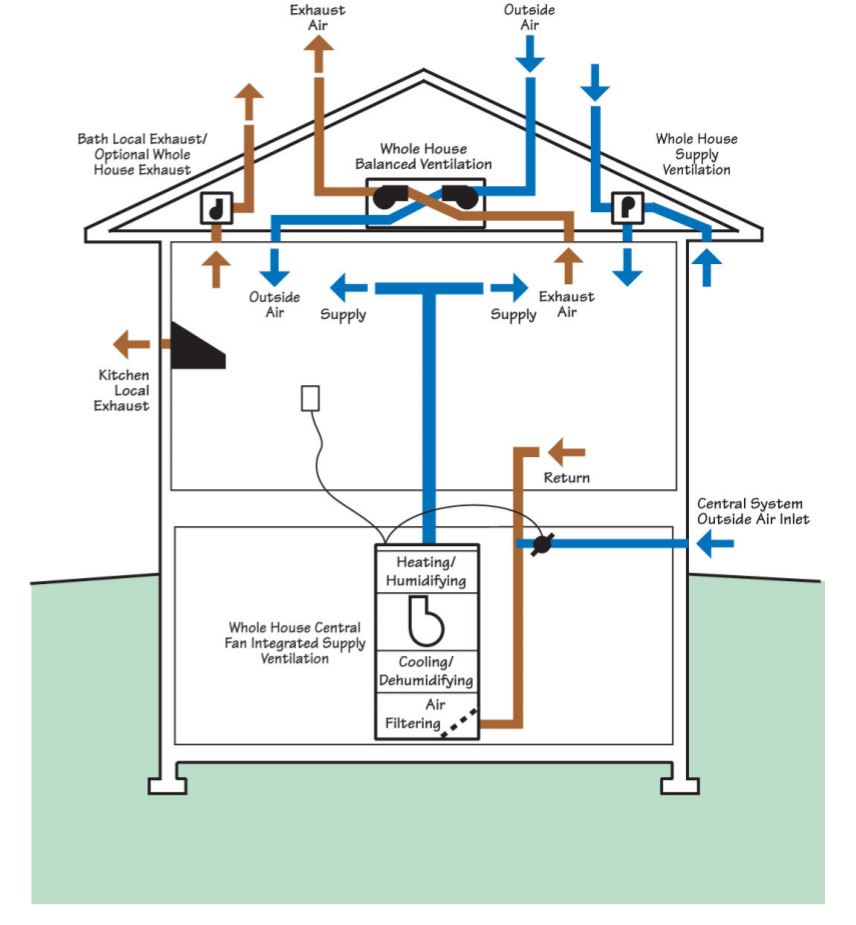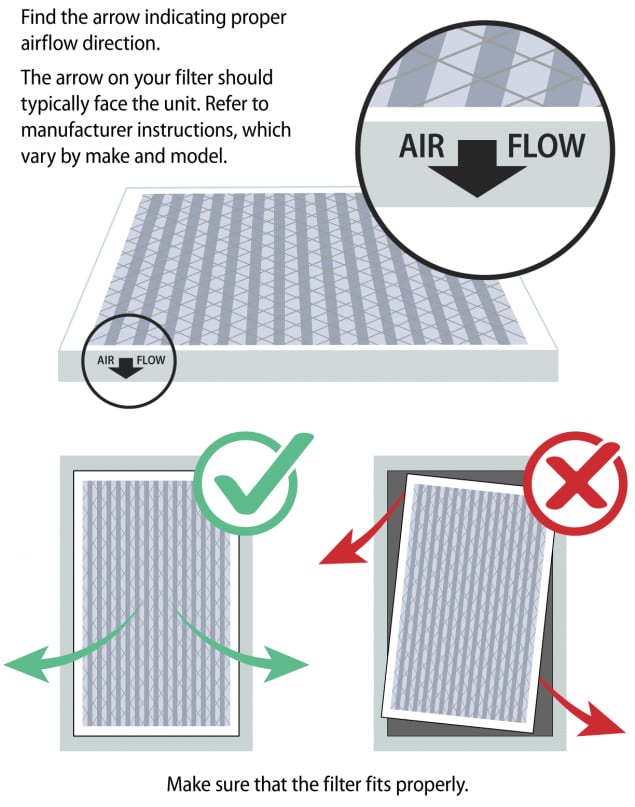Home Ventilation Melbourne: A Smart Investment for Modern Living
The Role of Home Ventilation in Avoiding Mold And Mildew and Indoor Allergens
Home ventilation is an essential part in preserving a healthy and balanced indoor setting. It regulates humidity degrees, which can stop the growth of mold and the accumulation of irritants. Lots of property owners overlook the relevance of proper ventilation, commonly causing undetected issues. Comprehending how ventilation systems feature and their effect on air quality can be the trick to a healthier space. What steps can be required to boost these systems properly?
Recognizing Home Ventilation Systems
While lots of property owners may ignore the relevance of ventilation, understanding home ventilation systems is crucial for preserving interior air top quality and stopping mold growth - Home Ventilation Melbourne. These systems promote the exchange of stale indoor air with fresh exterior air, effectively decreasing pollutants and dampness degrees. Typical kinds consist of natural air flow, which depends on wind and temperature level differences, and mechanical ventilation, which uses air ducts and followers to manage air flow. Furthermore, balanced ventilation systems incorporate both methods to optimize air top quality. Appropriately made and kept air flow systems can assist control temperature and humidity, guaranteeing a comfortable living setting. Home owners ought to take into consideration factors like home climate, occupancy, and format when selecting a ventilation system to best suit their requirements and boost total air high quality
The Impact of Humidity on Mold And Mildew Growth
Moisture plays a vital function in mold and mildew growth, making it a crucial factor for house owners to monitor. Mold prospers in environments where moisture degrees exceed 60%, as these problems provide the wetness necessary for spores to multiply and sprout. High moisture can result from various resources, consisting of inadequate air flow, water leaks, and cooking or bathing tasks. When moisture levels continue to be raised, mold and mildew can establish quickly on organic materials such as material, wood, and drywall. House owners need to use dehumidifiers and ensure proper air flow in locations vulnerable to dampness, such as shower rooms and basements. Preserving indoor humidity between 30% and 50% can considerably reduce the threat of mold and mildew growth, contributing to a much healthier living setting.
Identifying Usual Indoor Allergens
Interior settings can nurture a range of irritants that influence health and convenience. Typical interior allergens consist of dust mites, pet dog dander, mold spores, and pollen. Dust termites grow in bed linen, carpetings, and upholstery, feeding upon natural product and adding to respiratory issues. Family pet dander, composed of small flakes from skin and hair, can trigger allergies in delicate individuals. Mold and mildew spores, often existing in wet areas, can influence and multiply air quality. In addition, plant pollen can infiltrate homes via open windows or on clothing. Recognizing these allergens is essential for preserving a healthy interior environment. Awareness of their existence permits property owners to take proactive measures to minimize direct exposure and improve general interior air high quality.
Benefits of Proper Ventilation
Proper ventilation is necessary for preserving a healthy interior environment, as it aids to control air quality and lower the build-up of pollutants. Appropriate airflow promotes the exchange of outside and indoor air, thus weakening harmful compounds such as volatile Discover More organic substances, irritants, and dust. This process not only improves comfort however also adds to the total well-being of occupants by reducing respiratory issues (Home Ventilation Melbourne). Appropriate ventilation efficiently manages humidity degrees, reducing the chance of mold development and cultivating a drier environment favorable to health and wellness. In addition, it can improve power efficiency by guaranteeing that cooling and heating systems operate better, bring about reduced power prices. Generally, appropriate ventilation is a crucial part in promoting a secure and healthy home

Tips for Improving Home Air Flow
Lots of home owners might forget it, improving home air flow is vital for boosting air quality and avoiding mold and mildew development. One efficient strategy is to frequently open home windows to promote cross-ventilation, enabling fresh air to distribute. Mounting exhaust followers in kitchens and restrooms can effectively remove moisture-laden air, decreasing moisture levels. Home owners need to likewise take into consideration utilizing air cleansers with HEPA filters to capture allergens and pollutants. Consistently preserving cooling and heating systems, consisting of altering filters, warranties come to a head air flow and effectiveness. Sealing leakages around doors and windows can prevent outdoors air from going into, which helps maintain a regular indoor environment. Ultimately, integrating houseplants can naturally boost air high quality while adding visual value to the home.
Frequently Asked Inquiries
Exactly how Frequently Should I Tidy My Home Air Flow System?
Determining just how commonly to clean a home air flow system depends on numerous elements, consisting of usage and ecological conditions. Home Ventilation Melbourne. Normally, professionals suggest a complete cleaning every 3 to five years to preserve perfect air movement and effectiveness
Can Plant Kingdom Help Lower Indoor Allergens?
Research shows that certain indoor plants might help in reducing allergens by enhancing air top quality and enhancing moisture. Nonetheless, their effectiveness differs, and keeping a clean environment stays important for taking care of interior irritants description effectively.
What Types of Air Filters Are Finest for Mold And Mildew Prevention?

Are There Particular Air Flow Demands for Basements?

Exactly how Do I Know if My Air Flow Is Working Successfully?
To determine efficient air flow, one should keep an eye on moisture degrees, check air flow via vents, and observe signs of condensation or stagnant air. Routine analyses can indicate whether the system properly flows and exchanges indoor air.
Comprehending exactly how air flow systems feature and their impact on air quality might be the secret to a much healthier living area. While lots of house owners might forget the importance of ventilation, understanding home ventilation systems is necessary for preserving indoor air high quality and protecting against mold and mildew development. Usual kinds consist of all-natural air flow, which counts on wind and temperature level distinctions, and mechanical air flow, which makes use of air ducts and followers to regulate air movement. Correct ventilation is necessary for preserving a healthy and balanced indoor atmosphere, as it helps to regulate air quality and minimize the build-up of toxins. Lots of home owners might ignore it, enhancing home ventilation is important for enhancing air quality and preventing mold and mildew development.